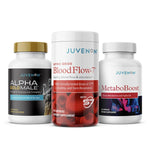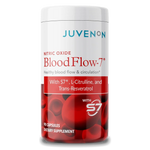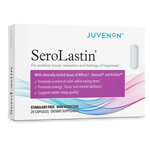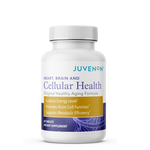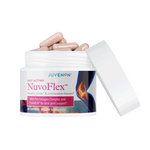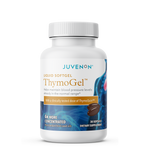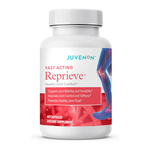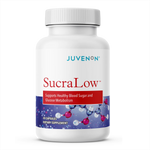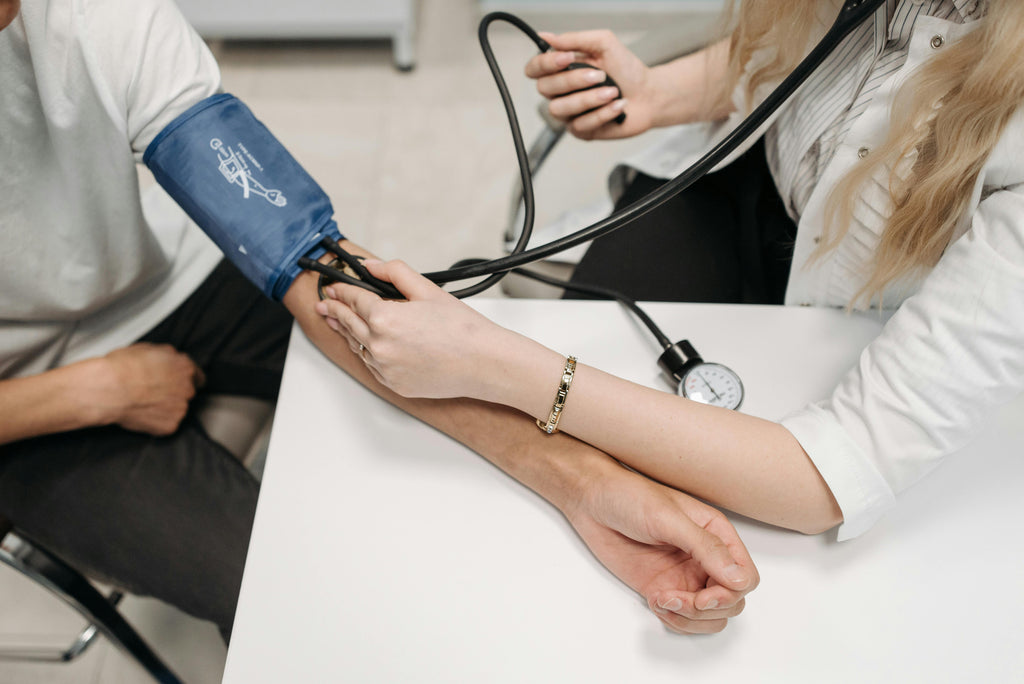
You may be familiar with hypertension (high blood pressure), but what is prehypertension? And is prehypertension bad?
The truth is that blood pressure may not be on your radar until it becomes elevated, but if you can detect changes in blood pressure early, you have an incredible opportunity to course-correct and prevent hypertension and future disease.
This article will take a closer look at prehypertension. We’ll cover:
- What makes prehypertension dangerous?
- What is prehypertension blood pressure?
- Prehypertension symptoms
- What causes prehypertension?
- Can prehypertension be reversed?
Let’s dive into this critical topic. This information could be life-changing for you or a loved one.
What Are the Hidden Dangers of Prehypertension?
Prehypertension refers to elevated blood pressure that’s out of range but not high enough to qualify for a hypertension diagnosis. Prehypertension is a warning sign from your body that you are moving toward hypertension and an incredible opportunity to put habits, supplements, and lifestyle changes in place to support healthy blood pressure.
The hidden dangers of prehypertension are similar to hypertension but may not have clinical signs yet. Any elevation in blood pressure can damage blood vessels. Prehypertension is associated with subclinical atherosclerosis, meaning there is inflammation in the arteries, and the conditions for arterial plaque formation have begun. (1)
Prehypertension can correlate with other metabolic changes like insulin resistance, weight gain (especially around the midsection), and changes in lipids. When these underlying processes continue unchecked, prehypertension could lead to:
- Metabolic syndrome
- Hypertension
- Cardiovascular disease (heart disease)
- Heart attack
- Stroke
- Kidney disease
- Erectile dysfunction
- Low libido (1, 2)
What is Prehypertension?
Prehypertension is an intermediate stage between normal blood pressure and hypertension, clinically high blood pressure. (1)
Here’s the breakdown of blood pressure ranges for each category or stage of hypertension:
|
Blood Pressure Category |
Blood Pressure Reading in millimeters of mercury (mm Hg) |
|
Normal Blood Pressure |
120/80 mm Hg or lower |
|
Prehypertension |
120-129/ < 80 mm Hg |
|
Stage 1 Hypertension |
130-139/ 80-89 mm Hg |
|
Stage 2 Hypertension 140 |
140/90 mm Hg or higher (1) |
Symptoms of Prehypertension
You can have prehypertension and not know it because there might not be any symptoms. For this reason, prehypertension tends to be underdiagnosed and underreported. (1)
The only way to know if your blood pressure and if you’re in the prehypertension range is to check your blood pressure at a doctor’s office, pharmacy, or with a home monitor. Since blood pressure can rise above average in the doctor’s office for some people (called white coat syndrome), you need multiple measurements to confirm elevated blood pressure. (3)
As blood pressure rises, some will experience hypertension symptoms, but most will remain asymptomatic. Symptoms of high blood pressure may include:
- Dizziness
- Headaches
- Shortness of breath
- Fatigue
Prehypertension Causes and Risk Factors
Since prehypertension is asymptomatic, a common question is: How do I know if I’m at risk for prehypertension?
Prehypertension affects both men and women. Blood pressure tends to rise with age, weight gain, and alongside elevations of cholesterol, triglycerides, and blood glucose. Risk factors for prehypertension (and hypertension) include:
- Sedentary lifestyle (4)
- Overweight or obesity
- Family history of hypertension
- Smoking and vaping (5)
- Heavy alcohol consumption (6)
- Standard American, inflammatory diet
- Diabetes
- Aging (7)
How to Reverse Prehypertension
The good news is that many of the risk factors for prehypertension are modifiable and within your control. Changing lifestyle behaviors can help prevent and reverse prehypertension in many cases, and the earlier you start making changes, the better. Targeted supplements are a helpful adjunct to lifestyle change.
Here are some ways to support healthy blood pressure:
- Have annual physicals, monitor blood pressure and metabolic lab work
- Adopt habits to maintain a healthy weight
- Increase movement and exercise
- Reduce stress
- Reduce or eliminate alcohol
- Quit smoking and vaping
- Choose nutrient-dense, unprocessed foods
A Mediterranean dietary approach supports reversing prehypertension and maintaining optimal blood pressure. This dietary strategy focuses on whole, minimally processed foods while deemphasizing high-sodium, packaged foods. Whole foods, like vegetables, fruits, and legumes (staples of the Mediterranean diet), are rich in magnesium, potassium, and other nutrients that regulate blood pressure.For most people increasing magnesium and potassium via plant foods is the key to blood pressure. (1, 8)
Not only does this diet support prehypertension, but it also addresses all the cardiometabolic risk factors for chronic diseases. (8)
To learn more about natural solutions to maintain healthy blood pressure, please read 5 Ways to Manage Your Blood Pressure – Naturally!
Supplements can also help maintain healthy blood pressure!
Black seed oil (Nigella sativa) is an herb with a long history of use in traditional medicine. Its active constituent, thymoquinone, produces antioxidant, anti-inflammatory, anti-hypertensive, and cardioprotective properties while promoting metabolic health. (9)
Juvenon ThymoGel contains a high-quality black seed oil known as ThymoQuin, which is six times more potent than other options. It helps maintain healthy blood pressure by addressing root causes and keeping arteries relaxed, flexible, and protected from damage. Clinical trials have shown powerful results in as little as two days of use!
Takeaways
Prehypertension is a silent epidemic, but it doesn’t have to be. Awareness and regular blood pressure screenings can help you catch it early.
Prehypertension is a powerful wake-up call that helps you examine your lifestyle and risk factors for future diseases. Taking control of your blood pressure and health is empowering, and so much is within your reach. Combine a healthy lifestyle with Juvenon ThymoGel for sustainable results.
References
- Srivastava A, Mirza TM, Sharan S. Prehypertension. [Updated 2022 Aug 29]. In: StatPearls [Internet]. Treasure Island (FL): StatPearls Publishing; 2024 Jan-. Available from:https://www.ncbi.nlm.nih.gov/books/NBK538313/
- https://www.heart.org/en/health-topics/high-blood-pressure/health-threats-from-high-blood-pressure
- Pioli MR, Ritter AM, de Faria AP, Modolo R. White coat syndrome and its variations: differences and clinical impact.Integr Blood Press Control. 2018;11:73-79. Published 2018 Nov 8. doi:10.2147/IBPC.S152761
- Diaz KM, Shimbo D. Physical activity and the prevention of hypertension.Curr Hypertens Rep. 2013;15(6):659-668. doi:10.1007/s11906-013-0386-8
- Benowitz NL, Burbank AD. Cardiovascular toxicity of nicotine: Implications for electronic cigarette use.Trends Cardiovasc Med. 2016;26(6):515-523. doi:10.1016/j.tcm.2016.03.001
- Tasnim S, Tang C, Musini VM, Wright JM. Effect of alcohol on blood pressure.Cochrane Database Syst Rev. 2020;7(7):CD012787. Published 2020 Jul 1. doi:10.1002/14651858.CD012787.pub2
- Collier SR, Landram MJ. Treatment of prehypertension: lifestyle and/or medication.Vasc Health Risk Manag. 2012;8:613-619. doi:10.2147/VHRM.S29138
- Tuttolomondo A, Simonetta I, Daidone M, Mogavero A, Ortello A, Pinto A. Metabolic and Vascular Effect of the Mediterranean Diet.Int J Mol Sci. 2019;20(19):4716. Published 2019 Sep 23. doi:10.3390/ijms20194716

